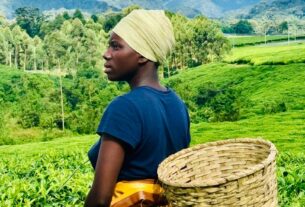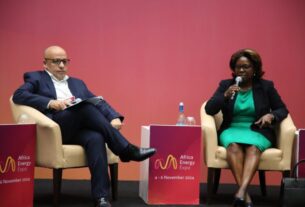Parfait encouraged youth to laboriously engage with fiscal institutions, cheering them that new programs would soon be introduced to grease this. He emphasized that youthful entrepreneurs would have openings to secure loans for their systems, with a portion of the backing available after an original payment. similar measures are designed to palliate some of the challenges youthful people face when trying to pierce capital to start or grow their businesses.
The findings of the FinScope 2024 study, conducted in cooperation with the Ministry of Finance and Planning, the National Bank of Rwanda( BNR), and the National Institute of Statistics of Rwanda( NISR), complement the positive outlook for fiscal addition in Rwanda. According to the study, 96 of Rwandans now have access to fiscal services, an increase from 93 in 2020. This means that roughly 7.6 million people are using registered fiscal services, while only 4 of the population still relies onnon-registered styles.
The study also sheds light on the colorful fiscal services that Rwandans are exercising. It reveals that 22 of individualities use services from colorful banks, while 70 access fiscal coffers through other honored institutions. also, the chance of individualities without access to fiscal services has dropped significantly from 7 in 2020 to just 4 in 2024, marking substantial progress in the country’s sweats to close the fiscal addition gap.
Another noteworthy finding from the study is the emotional rise in the use of Mobile Money services, which have increased from 62 in 2020 to 86 in 2024. This swell reflects the growing part of digital fiscal services in the country, particularly as they give a accessible and accessible way for people to engage in fiscal deals without demanding a traditional bank account. likewise, 51 of the population now accesses fiscal services through Savings and Credit Cooperative Organizations( SACCOs), while 13 make use of insurance services. These numbers illustrate the diversity of fiscal products available to Rwandans, allowing individualities to choose the services that stylish suit their requirements.

These developments emphasize Rwanda’s commitment to fostering a financially inclusive terrain, particularly for its youth. By adding the availability and vacuity of fiscal services, the country is creating an enabling terrain for youthful people to engage in profitable conditioning, whether through entrepreneurship, savings, or other fiscal gambles. This growing access to fiscal services paves the way for increased profitable participation, helping youthful people make wealth and contribute to the overall development of the nation.
The rise in youth access to fiscal services is anticipated to play a vital part in driving Rwanda’s profitable growth in the coming times. As youthful people are empowered with the tools they need to start businesses, manage their finances, and invest in their futures, they will contribute to the country’s development across a variety of sectors. This, in turn, will help address the challenges of severance, poverty, and inequality, creating a more inclusive and sustainable frugality for all.
The findings of the Access to Finance Rwanda study and the FinScope 2024 report give a promising outlook for fiscal addition in Rwanda, particularly among the youth demographic. As the government continues to invest in programs that make fiscal services more accessible and inclusive, youthful Rwandans will be better equipped to take advantage of profitable openings, driving invention, entrepreneurship, and profitable growth. With the right support and coffers, the country is on track to foster a thriving fiscal ecosystem that benefits all citizens, especially the youth, who represent the future of Rwanda’s frugality.





